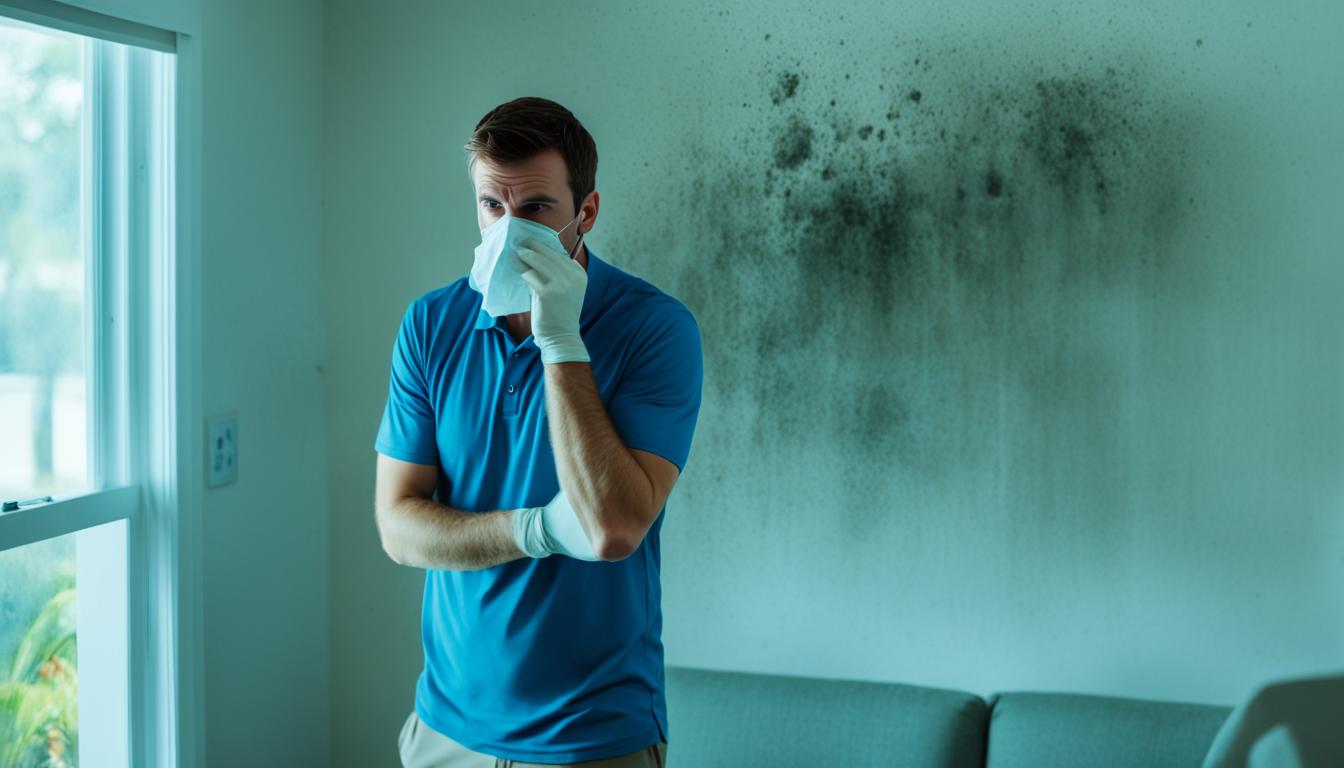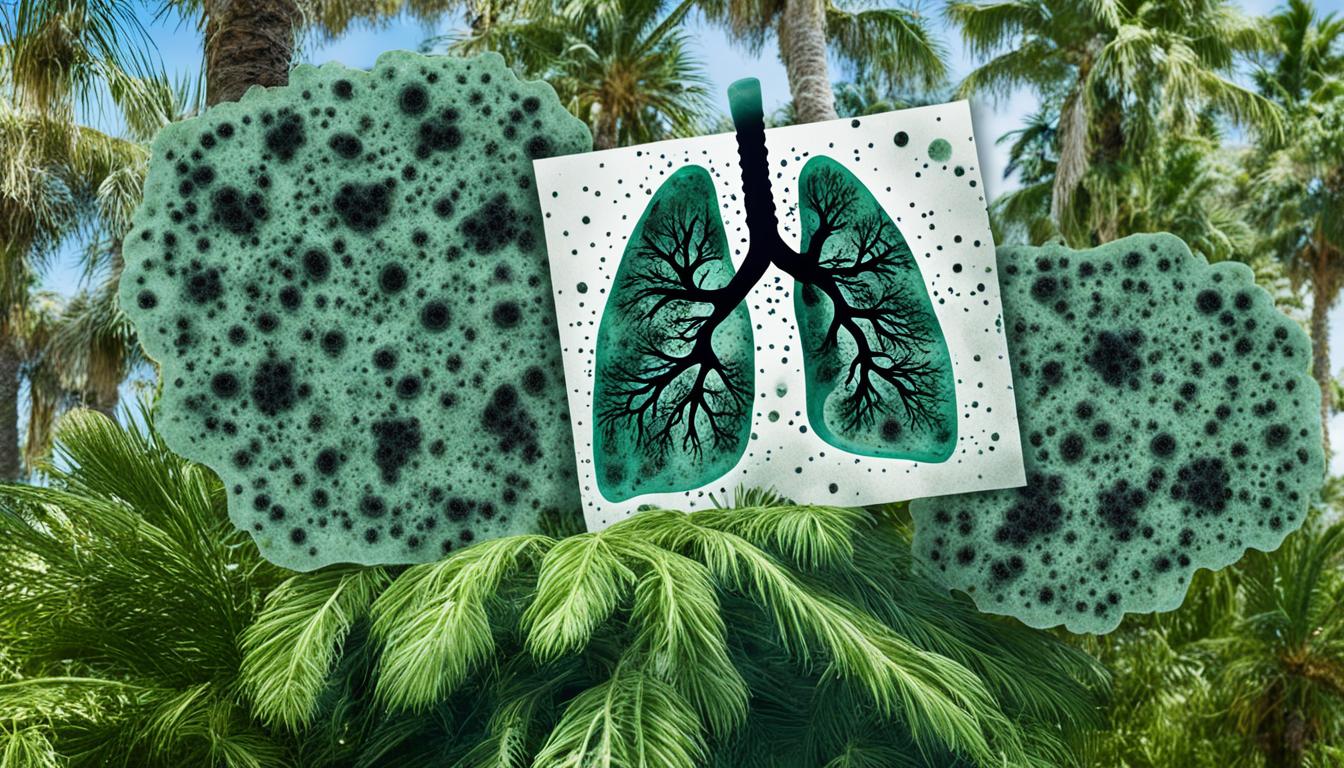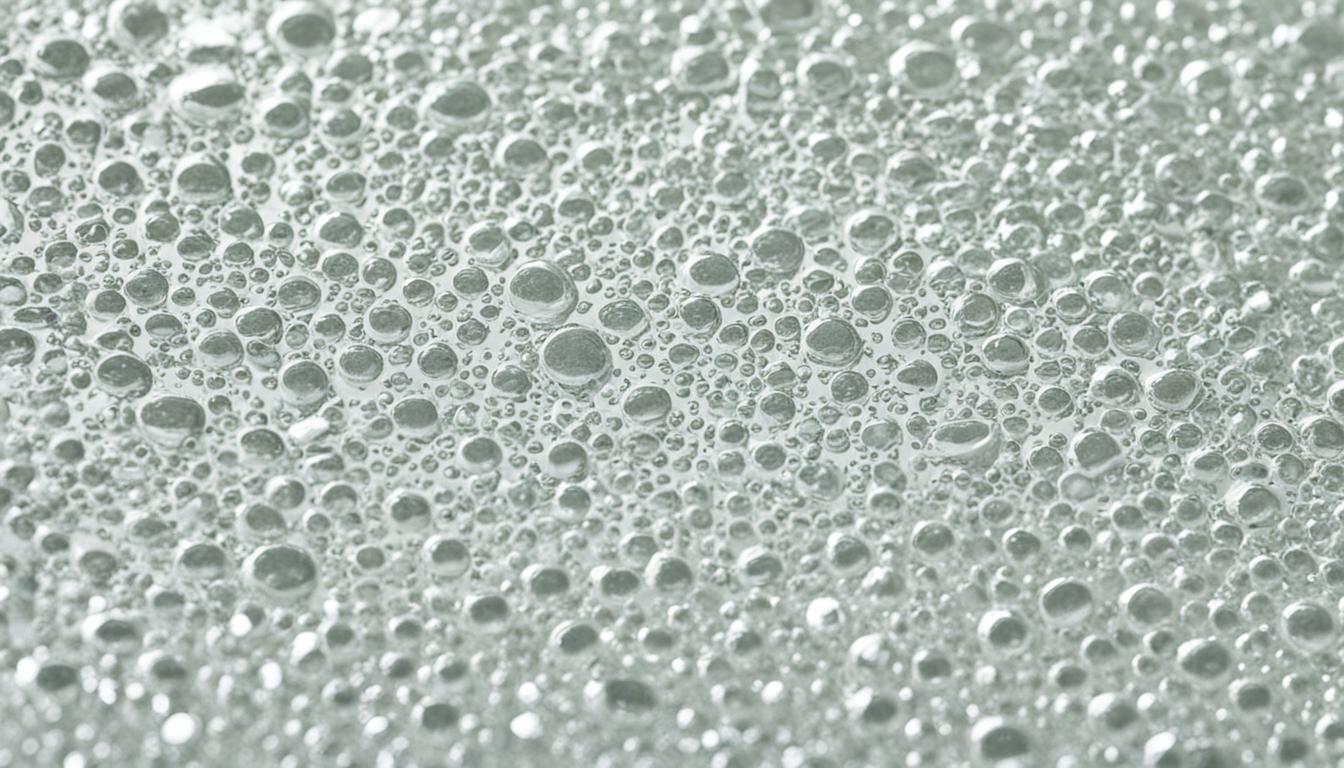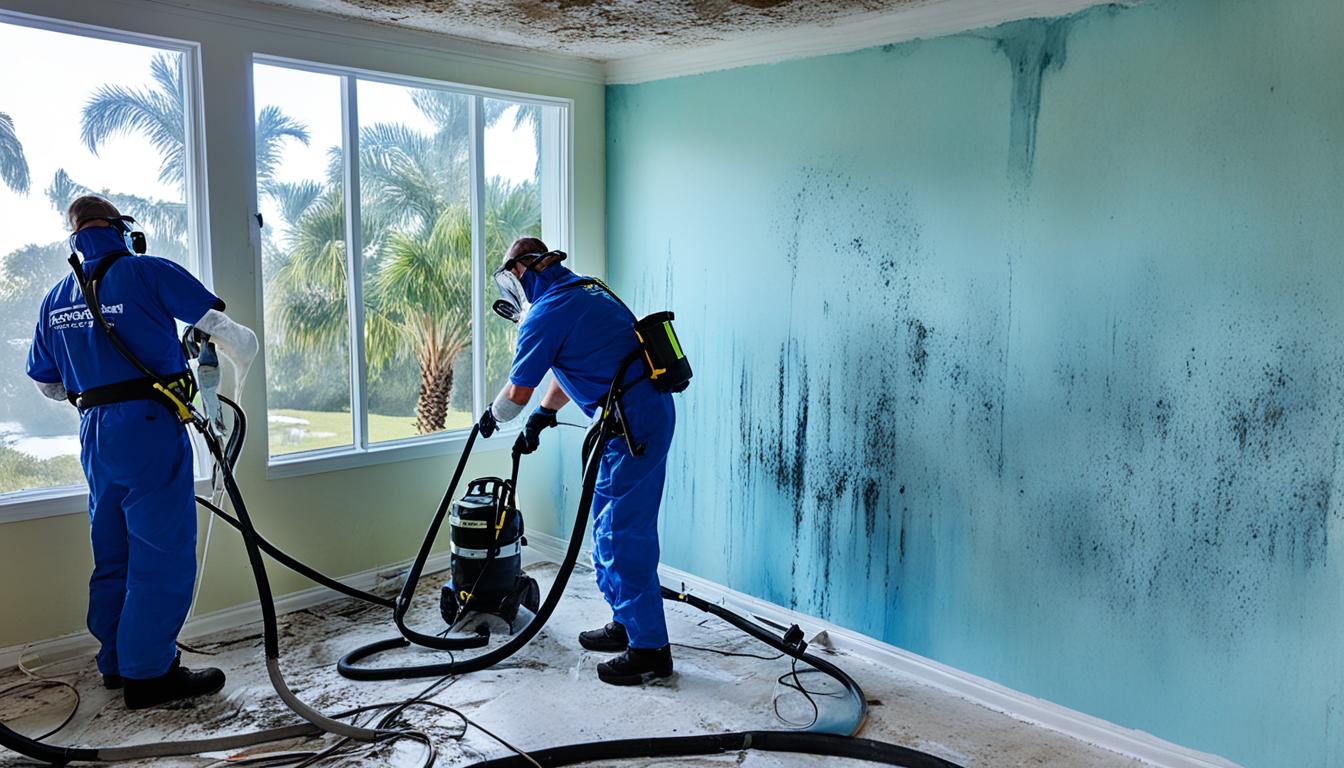
Mold Sickness in Florida: Symptoms & Prevention
Welcome to our informative guide on mold sickness in Florida. As a state notorious for its warm and humid climate, Florida residents are particularly susceptible to mold-related health issues. In this article, we will explore the symptoms of mold sickness that you should watch out for and provide you with valuable prevention strategies to create a healthier home environment.
Key Takeaways:
- Mold sickness can have adverse effects on the health of Florida residents.
- Common symptoms of mold sickness include respiratory issues, allergic reactions, and skin irritations.
- Preventing mold growth involves proper moisture control, ventilation, and regular inspections.
- Professional mold assessments can help identify and address underlying issues in your home.
- By taking proactive measures to minimize mold exposure, you can create a healthier living environment.
Understanding Mold Sickness
Mold sickness can have significant health effects on individuals exposed to it. It can particularly impact respiratory health and trigger allergic reactions. In this section, we will explore the various health effects of mold sickness, providing valuable insights for readers to understand how mold can affect their well-being and potentially lead to respiratory issues or allergic reactions.
Mold exposure has been linked to a range of respiratory problems, such as coughing, wheezing, and shortness of breath. Mold spores can irritate the respiratory system and cause inflammation, triggering these symptoms in susceptible individuals. Moreover, long-term exposure to mold can exacerbate existing respiratory conditions, such as asthma and bronchitis, leading to more severe respiratory issues.
Additionally, mold can induce allergic reactions in some people. When individuals with allergies come into contact with mold spores, their immune system may overreact, resulting in symptoms like sneezing, itchy or watery eyes, and a runny nose. Mold allergies can also manifest as skin rashes or hives.
“The health effects of mold sickness can vary depending on the individual’s sensitivity level and the type of mold present,” says Dr. Emily Mitchell, a renowned allergist. “It is crucial for individuals to recognize the symptoms of mold sickness and take appropriate measures to protect their health.”
Understanding the health effects of mold sickness is essential for individuals to address and mitigate the risks associated with mold exposure. By being able to recognize the connection between mold and respiratory issues or allergic reactions, individuals can take proactive steps to create a healthier living environment.
Next, we will delve into the specific symptoms of mold sickness that Florida residents should be aware of to promptly identify potential health issues and seek appropriate medical attention.

| Health Effects of Mold Sickness | Respiratory Issues | Allergic Reactions |
|---|---|---|
| Impact on respiratory health | Wheezing, coughing, shortness of breath | Sneezing, itchy or watery eyes, runny nose |
| Exacerbation of existing respiratory conditions | Asthma, bronchitis | Skin rashes, hives |
Symptoms of Mold Sickness in Florida
When it comes to mold sickness, Florida residents need to be aware of the specific symptoms that could indicate potential health issues. Mold exposure can lead to a range of common signs, affecting both physical well-being and respiratory health.
Respiratory Issues
One of the most common symptoms of mold sickness is respiratory problems. Individuals exposed to mold may experience coughing, wheezing, chest tightness, and difficulty breathing. These respiratory issues can be particularly concerning for individuals with pre-existing respiratory conditions, such as asthma or allergies.
Skin Irritations
Mold exposure can also cause skin irritations and allergies. Individuals may experience itching, redness, rashes, or hives when exposed to mold. These symptoms can range from mild to severe, depending on the individual’s sensitivity to mold.
Other Health Problems
In addition to respiratory issues and skin irritations, mold sickness can lead to a variety of other health problems. These may include headaches, fatigue, sinus congestion, nasal irritation, and throat discomfort. It is important for Florida residents to be vigilant about these symptoms, as early detection and intervention can help prevent further health complications.
To raise awareness and better understand the symptoms of mold sickness, it is crucial for Florida residents to stay informed and educated. By recognizing these common signs, individuals can take proactive measures to minimize their exposure to mold and protect their overall health and well-being.

Symptoms of Mold Sickness
| Symptoms | Description |
|---|---|
| Respiratory Issues | Coughing, wheezing, chest tightness, difficulty breathing |
| Skin Irritations | Itching, redness, rashes, hives |
| Other Health Problems | Headaches, fatigue, sinus congestion, nasal irritation, throat discomfort |
Prevention Strategies for a Healthier Home Environment
To maintain a healthier home environment in Florida and minimize the risk of mold sickness, it is crucial to implement key prevention strategies. By focusing on mold prevention, Florida homeowners can create a safe and comfortable living space for themselves and their families.
Moisture Control
Moisture control is paramount when it comes to preventing mold growth in Florida homes. By addressing any sources of excess moisture, such as leaks or water infiltration, homeowners can significantly reduce the likelihood of mold formation. Regularly inspecting and promptly repairing any water damage is essential for effective moisture control.
Proper Ventilation
Proper ventilation plays a vital role in preventing mold growth by maintaining adequate air circulation. Ensuring that bathrooms, kitchens, and laundry rooms have proper ventilation, such as exhaust fans, helps to remove excess moisture from the air and prevent condensation. Additionally, opening windows and doors during less humid periods can help improve air flow.
Regular Inspections
Regular inspections of your Florida home can help you identify any signs of moisture or mold growth early on. Look out for musty odors, discolored walls or ceilings, and visible mold growth. Taking immediate action to address these issues can prevent further mold contamination and potential health risks.
Importance of Professional Mold Assessments
To ensure a comprehensive evaluation of your home’s mold risk, it is advisable to seek a professional mold assessment. A certified mold inspector will conduct a thorough inspection of your property, identifying potential problem areas and providing expert recommendations for mold prevention. Investing in a professional assessment can provide peace of mind and help you proactively protect your home and health.
| Prevention Strategies | Benefits |
|---|---|
| Moisture Control | – Reduces the likelihood of mold growth – Prevents water damage to the home |
| Proper Ventilation | – Improves air circulation – Reduces excess moisture and condensation |
| Regular Inspections | – Identifies moisture and mold issues early on – Prevents further mold contamination |
| Professional Mold Assessments | – Provides expert evaluation of mold risk – Offers tailored prevention recommendations |
By following these prevention strategies and taking proactive measures, Florida homeowners can create a healthier home environment and minimize the risk of mold sickness for themselves and their loved ones.
Conclusion
In conclusion, it is crucial for Florida residents to be aware of the symptoms of mold sickness and take proactive steps to prevent its occurrence. Mold sickness can have significant health effects, including respiratory issues and allergic reactions. It is important to recognize the common signs such as respiratory problems and skin irritations, which may indicate mold exposure.
By implementing effective prevention strategies, such as controlling moisture levels, ensuring proper ventilation, and conducting regular inspections, residents can create a healthier home environment. Professional mold assessments can also play a vital role in identifying and addressing potential mold issues.
Maintaining a mold-free environment is essential for the overall health and well-being of Florida residents. By understanding the symptoms of mold sickness and taking proactive measures to prevent its growth, individuals can protect themselves and their families from the potential adverse effects of mold exposure. Prioritizing a mold-free living space will contribute to a healthier and happier life.




